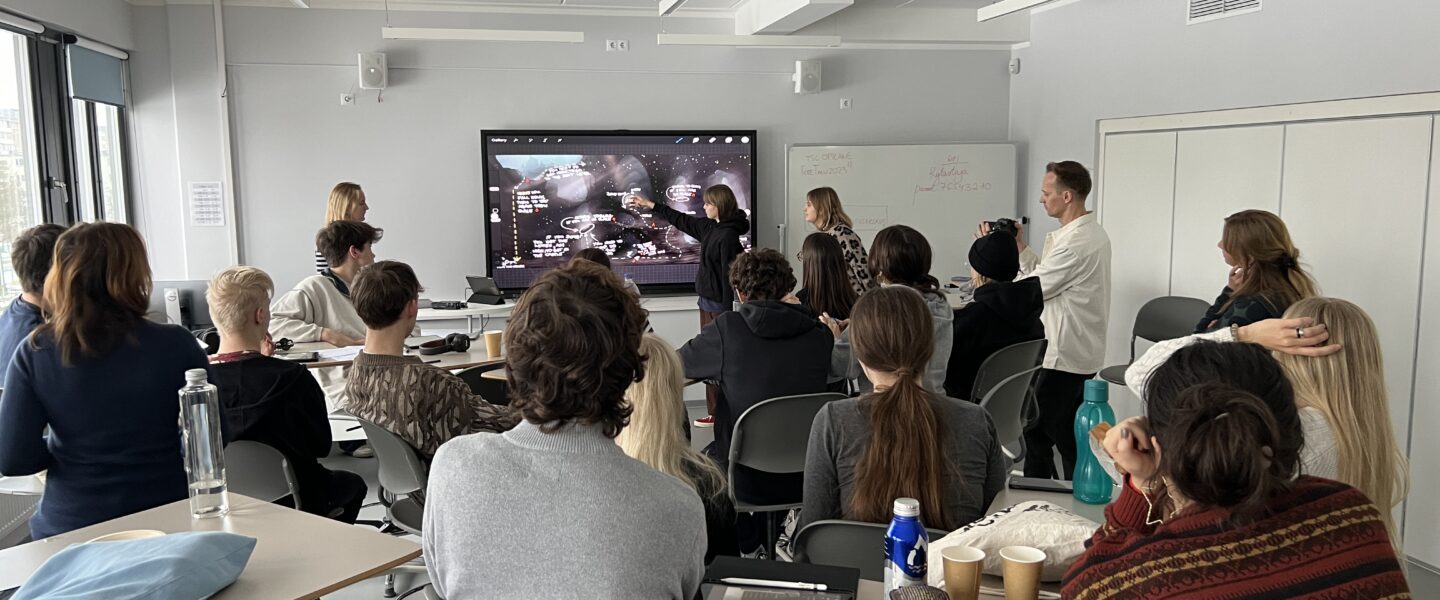
zoom
Start Date:
26.09.2024
Start Time:
09:30
End Date:
26.09.2024
On 26 September at 09.30-11.00 the peer review of Taavi Varm’s doctoral project will take place. Taavi Varm is a PhD student in Art and Design programme. The project “Erasmus Workshop 2024: Integrating participatory learning, video game design and psychological well-being” is the 1st artistic research project of his doctoral studies at the Estonian Academy of Arts.
Taavi’s artistic doctoral thesis entitled “Designing video games for young adults to improve mental health and psychological well-being” at the Estonian Academy of Arts explores the integration of participatory learning, co-creation and experimental video game design to develop innovative methods and find new perspectives for improving psychological well-being of young adults.
Supervisors:
Dr. Varvara Guljajeva (HUSK)
Dr. Helen Uusberg (University of Tartu)
Project reviewers:
Dr. Liina Unt (University of Tartu, Viljandi Culture Academy)
Dr. Ásthildur Jónsdóttir (Iceland University of the Arts)
Peer review event will take place in Zoom:
https://zoom.us/j/95865149077?pwd=dOJbppC0isCyq2QoKPZmxhSgm3xv0d.1
Meeting ID: 958 6514 9077
Passcode: 817972
Mental health issues are a major global concern, especially among young adults. According to the World Health Organization, depression and anxiety are leading causes of disability worldwide. Especially in Estonia, nearly half of young adults report mental health challenges. Addressing these issues is vital for creating a healthier and more productive future generation.
The workshop, which took place at Tallinna Saksa Gümnaasium, was an artistic educational initiative that aimed to combine video game design with participatory learning and psychological well-being.
The workshop explored the potential positive impact of participatory creative methods on the psychological well-being of young adults. The workshop focused on artistic and experimental game design in a supportive environment. The main methods used were specially developed design toolboxes, the psychological concept of flow theory and participatory design principles.
The aim of this research is to offer creative approaches to addressing mental health issues through an artistic research framework. Emphasizing co-creation, the goal is to foster meaningful dialogue and creative synergy among young adults, artists, and professionals, generating evidence-based solutions in both the creative process and the final game projects.
I would like to thank the partners and supporters:
My supervisors Helen Uusberg and Varvara Guljajeva for continuous support.
Erik Joasaare from Tallinna Saksa Gümnaasium, Lisbon German School, Erasmus+ Art Bridge project, Andero Uusberg from University of Tartu and the Doctoral School of the Estonian Academy of Arts.
